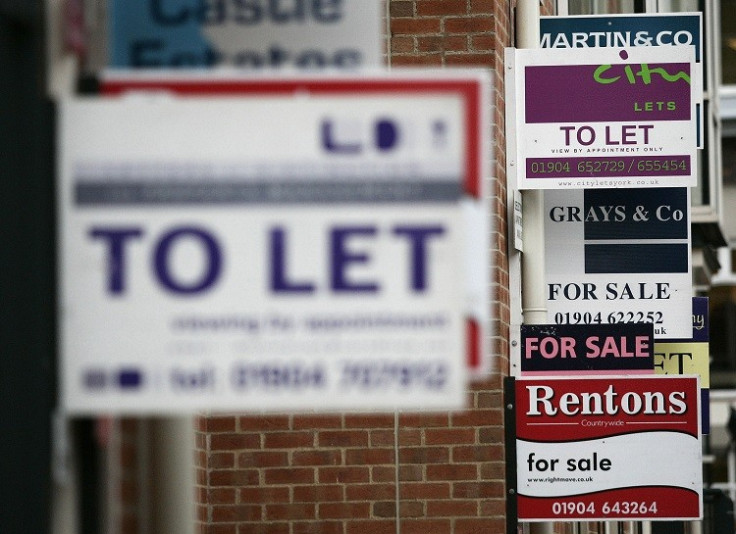Only rent controls will help to solve London's housing crisis

Renters make up just over half of all Londoners and 50% of those are in the private rented sector. And while this figure is growing rapidly, policymakers continue to ignore the tenants because, nationally, 60% of people live in owner occupation.
House prices and rent in London form a vicious circle. There are plenty of jobs so lots of people want to live here, so rents and house prices go up. But that means wages have to go up, which attracts more people, meaning rents and house prices continue to rise. As rents rise, it becomes impossible to save money and home ownership becomes unrealistic.
Our government – and even the Labour Party in opposition – refuses to countenance the suggestion that unlimited profits for landlords are causing a problem.
Increasingly, it is landlords buying up homes because they have the money to do so. Because they're charging so much rent. The only other way out is into social housing but so few homes are available that it's not available for most people.
So tenants are trapped consumers, told to leave London if they want lower housing costs – yet London isn't Britain's only expensive housing market. It's tough anywhere were there are jobs. So the only places where you can live with low housing costs are places where there are few jobs.
Being a trapped consumer means you can be exploited, not just by landlords but by agents too. Agents charge ridiculous fees and even the deposit protection schemes are competing for landlords' business so "independent" arbitration is weighted in favour of the landlord. You have little security of tenure and your landlord can evict you for no reason at all – meaning the tenant is at risk of homelessness in revenge if they assert any of the rights they notionally do have.
The impact is especially harsh on young people. While once upon a time it was expected that you might live in a house share early in your adult life, in London that is now a permanent arrangement. People tend to live in house shares until they find a partner to shack up with, or they are living with their parents into their 30s.
We won't know the consequences of this for 10 or twenty years, but putting an entire generation under constant financial pressure, limiting their living space and pressurising people into living with people they might not, given a choice, want to live with won't be positive. And increasingly house prices are out of the reach of couples, even with two incomes, meaning people will be renting throughout their lives.
Not only does this mean their children won't have the financial benefits of children growing up in owner occupation, but they won't have the stability either. Without security of tenure children will regularly suffer the upheaval of moving home and school.
We already know that house prices and rents spike in the catchment areas of high performing schools. People under pressure will be forced to live in places where the only schools available are poor quality.
But it's not just renters who will suffer from the housing crisis. The entire economy is at threat. London is possibly the preeminent city economy in the world. But as housing costs rise, people have to decide whether it really is worth their while to stay in the place where their exploitation is so brazen. But as people leave, they don't just go to the provinces, they consider going to other countries altogether.
Eventually, the wage levels required to keep talented people in London will be so high that companies will have to consider whether they can get just as talented people for less money by moving to another city. And those alternative cities are unlikely to be in the UK. So as big companies move abroad and individuals move out of the city, there remain fewer consumers, putting pressure on the smaller business that serve Londoners.
London's people, its businesses and the prosperity of Britain are under threat. The welfare of a generation of renters and their children hang in the balance.
The housing market, if left unchecked, will make London less competitive in the world and all of Britain will be poorer because of it.
But all this stupidity is considered to be worth it. Our government – and even the Labour Party in opposition – refuses to countenance the suggestion that unlimited profits for landlords are causing a problem. They oppose any meaningful form of rent control and are rarely even caught whispering that house prices are too high and should come down.
Land is a monopoly. No one's making any more of it. And this natural resource of limited supply is being hoarded by landlords, landowners and property developers so that they can profiteer from you and me. You are being exploited and you should be angry about it. If it were food or water being hoarded you would be angry – and yet it has the same effect. Rents are so high that people do have trouble paying their utility bills and buying their groceries.
Rent control is the only reasonable answer. Of course we need more homes too, but it will take many years for enough homes to be built, particularly when the government has no taste for paying for those homes. But rent control would have an immediate, beneficial effect.
London's people, its businesses and the prosperity of Britain are under threat. The welfare of a generation of renters and their children hang in the balance.
© Copyright IBTimes 2025. All rights reserved.






















